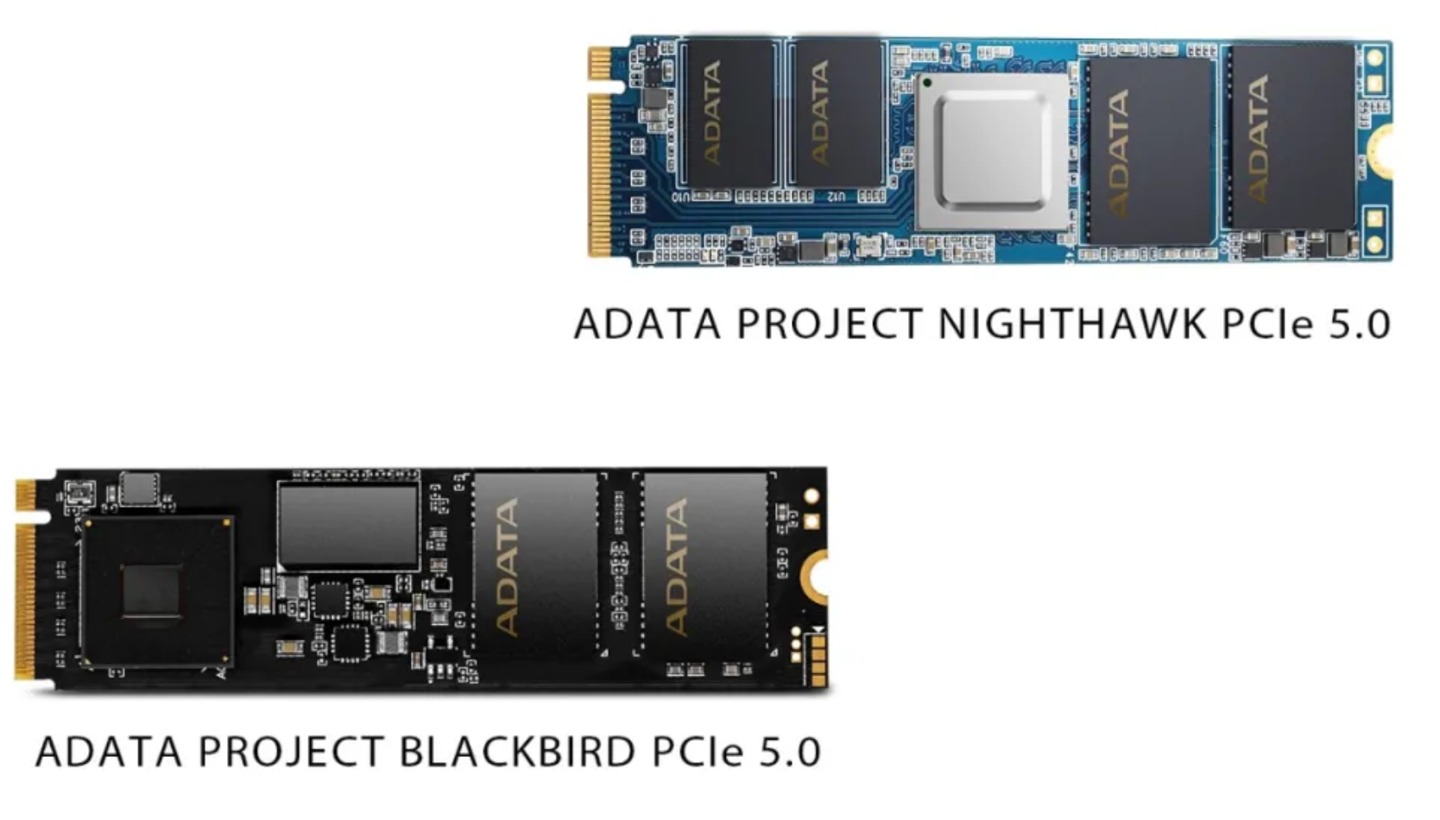Adata has given a tease of some of the products it will showcase at its booth at CES early next month. It looks like there’s a lot on show, but what caught our eye was the tease of a pair of prototype PCIe 5.0 SSDs. And don’t they have some amazing specifications!
The prototype PCIe 5.0 drives have been given the names Project Nighthawk and Project Blackbird. They will both support a PCIe 5.0 x4 interface along with the NVMe 2.0 protocol (which includes mechanical hard drive support!). Both drives will be available in capacities of up to 8TB. I want one. No, I want two.
The Nighthawk drive features a Silicon Motion SM2508 controller that can deliver sequential read/write speeds of up to 14/12 GB/s. That’s essentially double what the fastest PCIe 4.0 drives can do. The Blackbird drive features an InnoGrit IG5666 controller that can reach 14/10 GB/s.
There’s a bit of a problem though. Intel’s 12th Gen platform does support PCIe 5.0, but support is restricted to the PCIe slots. The M.2 slots only support up to PCIe 4.0. That doesn’t mean you can’t get the most out of a PCIe 5.0 SSD though, you’ll just have to use an M.2 adapter and have a board that supports at least two PCIe 5.0 slots, like the Asrock Z690 Taichi does. That way you can run a GPU in one slot and a PCIe 5.0 SSD expansion card in the other.
Of course, it remains to be seen how PCIe 5.0 SSDs perform in the real world. Sequential speeds grab the headlines but it’s the random performance and IOPS that impress us more. If they meaningfully surpass the best PCIe 4.0 drives including the WD SN850 and the excellent Seagate FireCuda 530 then we’ll surely fall in love with them. As long as they don’t require a few Kg of heatsink to cool properly though.
If Adata is ready to demonstrate these drives, will the big players in the SSD space be ready to tease their drives too? The likes of Samsung, Western Digital, Seagate and Kingston among others are surely cooking up some fast PCIe 5.0 drives. Without dedicated CPU linked PCIe 5.0 lanes though, we might have to wait for 13th Gen and Zen 4 CPUs and motherboards before these drives see widespread adoption.
All we can do is hope that these next gen drives won’t be plagued by shortages like just about every other PC component has suffered from by some degree over the last couple of years.
Stay tuned for our CES coverage in the first week of January.


